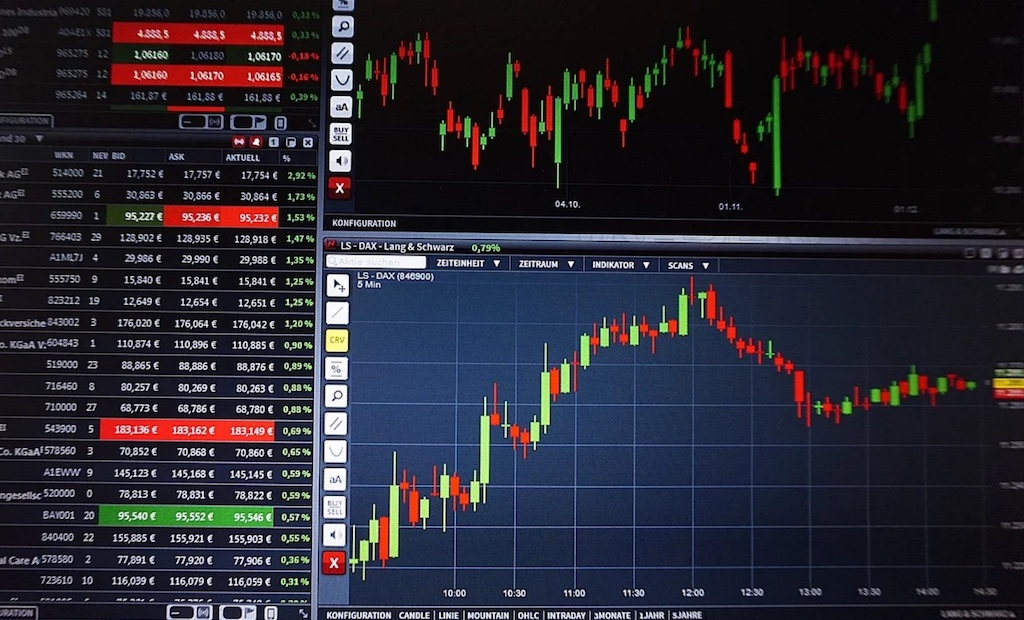FCA recovers £676,000 in losses for crypto and Forex trading scams

Once again, crypto is in the news – for both good and bad reasons. The good news is that the Financial Conduct Authority (FCA) has found the culprit in a Forex trading scam and is holding them accountable to their crime. This in itself is rare considering that the very nature of blockchain technology means there’s often no central authority to oversee the currency and these chains can’t be broken or penetrated once created. The bad news, however, is that cryptocurrency crime is becoming a popular way for scammers to trick people into sending money and it’s expected to increase.
Blockchain is supposed to make crypto a safe, unhackable online payment option. However, it’s open to exploitation in other ways. The anonymous nature of paying in cryptocurrency makes it attractive to everyday consumers but also to scammers, and the sudden rise in value attracts seasoned and novice investors alike.
What happened?
Five defendants, including the Soccer League International Limited, have been ordered to pay restitution amounting to £676,000 to people they duped in an unauthorised deposit scam. The SLIL had their portion of the repayment capped at £137,000 due to their relatively short involvement in the scheme.
Two other defendants, Soccer League UK Limited and Mr Mohammed Kabir, have had their assets frozen to the tune of £1.3m by the Financial Conduct Authority (FCA) while they await trial. Altogether, seven organisations were involved in the plot to defraud football fans. The repayments do not let any of the criminals off the hook. The accused seven face criminal charges against them.
The Forex industry has an average daily turnover of over $6 trillion, making it the largest and most liquid financial market in the world, as well as the most widely accessible. However, this story represents the challenges of ineffective regulations and extreme volatility, especially during times of economic turbulence.
This has prompted the FCA, which regulates Forex brokers in the UK, to attempt to create a safer trading environment. As financial analyst Tim Fries of the Tokenist points out, the FCA “is funded by Forex brokers, as well as other financial services in the UK. A key objective of the FCA is to ensure that all UK entities are licensed and actively creating and maintaining a trading environment that acts in the best interests of its traders.”
However, those people trading independently and getting scammed are forced to suffer losses while the criminals get away with it. But that doesn’t necessarily mean all is lost for those who have been caught up in a cryptocurrency scam.
Can scammed bitcoin be recovered?
Although nothing is guaranteed, there are two possible routes to try when there’s a risk of having been scammed. Keep in mind that any path should be followed up with diligence and action.
Recover scammed crypto without help
In the event of stolen cryptocurrency or scamming, the first step is to contact the investment platform or seller used. It should be possible to explain the details of the transaction to them and inform them that if they do not rectify the matter, they will be reported to the authorities.
It’s also worth alerting the relevant crypto wallet platform. This may not get the money back, but it will alert the platform so they can halt further transactions or sever their relationship with the fraudulent platform.
Another option is to ask for a chargeback for transactions conducted via credit card. Many financial institutions, including PayPal and most banks that issue credit cards, have fraud prevention measures in place. They’ll refund lost money and go after the criminals themselves.
The final step is to raise awareness about scams online. It makes a difference to the future safety of online trading if victims of scams blast the perpetrators on social media and warn others about their experiences in online forums.
Hire a professional recovery expert
Cryptocurrency-related fraud schemes increased during the COVID-19 pandemic with people of all ages, including the elderly, being victimised by crypto scammers. This rise in cybercrime also led to the rise of experts dealing with these specific forms of digital malfeasance.
Using a bitcoin recovery expert to recover scammed bitcoin is one of the best crypto recovery solutions because it provides the potential for billions of dollars in misappropriated cryptocurrency to be effectively and legally recovered. They have the experience, knowledge and technology to track digital transactions, and, even if they’re unable to trace money and have it returned, they can dig up further evidence against the criminals so they can be prosecuted.
Four ways to avoid Forex trading scams
Cryptocurrency-related scams vary from traditional Ponzi schemes to highly sophisticated crimes involving advanced technology and tech-savvy criminals. The relative anonymity of the Internet provides cover, and the constantly changing nature of trading makes it difficult for authorities and investors to keep up.
Scammers can get to victims by phone, email, or SMS. The best way to prevent financial losses is to recognise and avoid scams in the first place.
Here are some pointers:
If it sounds too good to be true, it probably is
This is a little different from a cold call by a salesperson. Forex scammers will often contact random people without being solicited for information first and make an offer that sounds too good to be true.They’re overly aggressive
Con artists will seek multiple means of contact in an attempt to get through to users. They will pester until they get what they want and won’t stop when told no further contact is desired.They make unrealistic promises
Much as they’re an attractive prospect, “get rich quick” schemes are like the pot of gold at the end of the rainbow: they don’t exist. Despite what it might say in the news about sudden Forex or Bitcoin billionaires, finding a return on any investment takes time and planning.They dazzle with jargon
Scammers will talk fast and use complicated language that’s difficult for most people to comprehend. Their websites also tend to contain complex, hard-to-decipher TOS and risk disclosures. Most people don’t read or understand the terminology, making it difficult for them to question their authority.
Final thoughts
Whether paying for something with bitcoin or looking for a way to improve finances through day trading, users should be aware that scammers are waiting to take advantage of the naive and uninformed.
Thankfully, there are consumer watchdog agencies out there, like the FCA, that are working hard in an attempt to stop these scammers from preying on enthusiastic crypto and Forex traders. Being better informed about the possible scams in the digital realms and being able to recognise these fraudulent scams, will help avoid falling victim to these criminals.
The editorial unit


























Facebook
Twitter
Instagram
YouTube
RSS